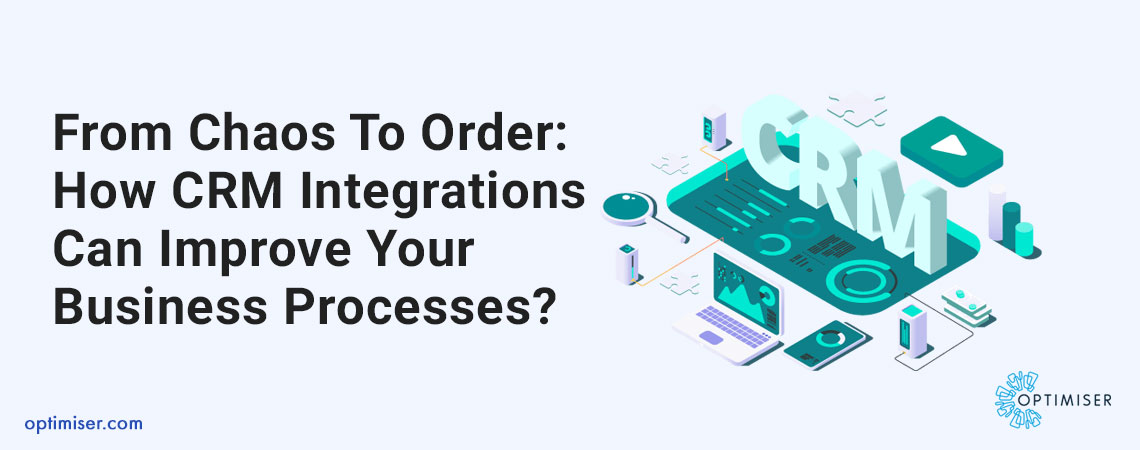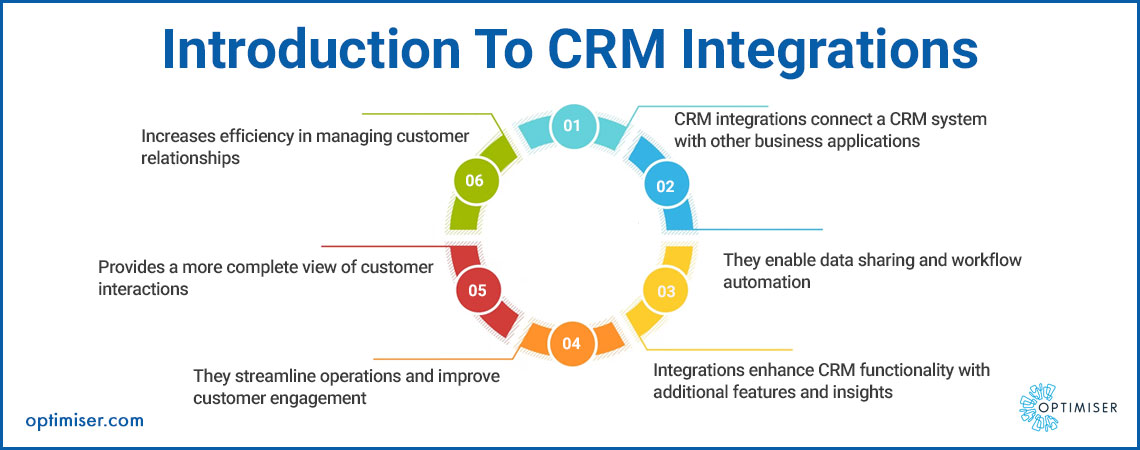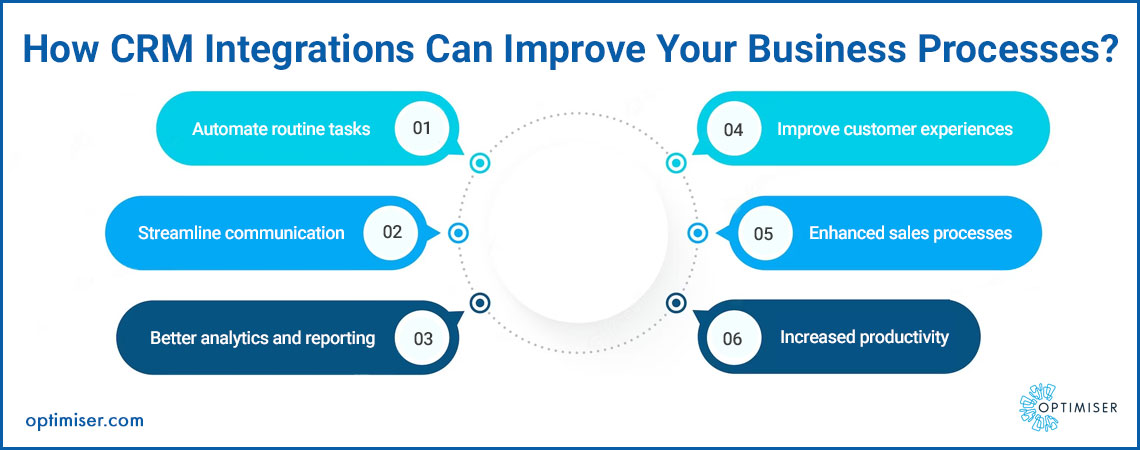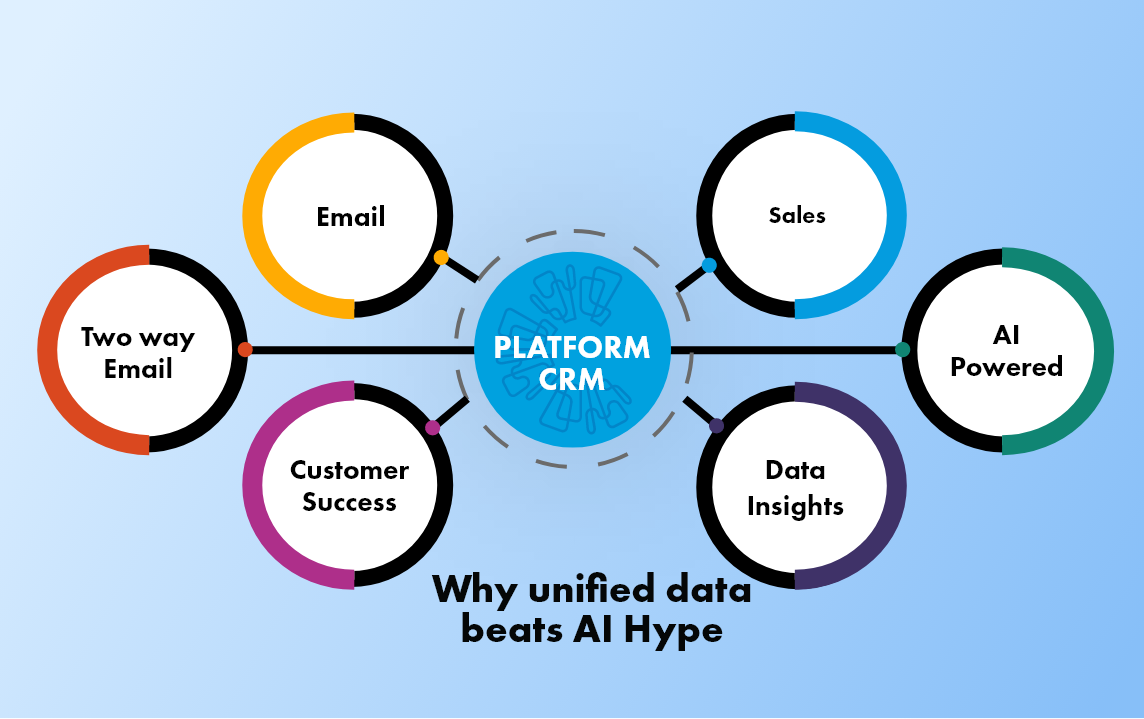
From Chaos To Order: How CRM Integrations Can Improve Your Business Processes
Connecting a customer relationship management or CRM with other software applications, platforms, or tools to facilitate the exchange of data and enhance the overall functionality and effectiveness of the CRM system is CRM Integrations. The CRM with Integrations allows businesses to streamline their operations, improve customer interactions, and gain deeper insights into their customer base.
CRM integrations can take various forms depending on the specific needs of the organisation. They can involve integrating the CRM system with popular productivity tools such as email clients, calendars, or task management applications. This integration enables users to access CRM data directly from their preferred tools, eliminating the need for manual data entry and ensuring that all customer-related information is up to date.
These integrations can extend beyond internal software and connect with external systems like marketing automation platforms, e-commerce platforms, social media networks, or customer support systems. Integrating CRM with these external systems enables businesses to automate marketing campaigns, track customer interactions across multiple channels, provide personalised customer experiences, and manage customer support tickets efficiently.
Integrations in CRM can also involve integrating with analytics and reporting tools, allowing businesses to generate comprehensive reports, analyse customer data, and gain valuable insights into their sales and marketing performance. By integrating CRM with analytics tools, businesses can make data-driven decisions, identify trends, and forecast future sales opportunities.

CRM Integrations: The Mechanisms
- Identify integration needs: Determine the specific goals and requirements of the integration. Assess which applications or platforms need to be connected to the CRM system.
- Select integration method: Choose the appropriate integration method based on the systems involved. This can include using APIs (Application Programming Interfaces), webhooks, middleware, or pre-built connectors.
- Develop integration solution: Develop the necessary code or configuration to establish the connection between the CRM system and the external application. This may involve custom development, utilising pre-built integration tools, or working with a third-party integration provider.
- Map data fields: Identify the relevant data fields in both systems and map them to ensure proper data synchronisation and transfer between the CRM and the integrated application.
- Test and deploy: Thoroughly test the integration solution to ensure data accuracy and functionality. Once testing is complete, deploy the Integrated CRM solution to the live environment.
- Monitor and maintain: Regularly monitor the integration to ensure its ongoing performance and troubleshoot any issues that may arise. Keep the integration up to date with system upgrades and changes.
Benefits Of CRM Integrations
- Streamlined data management: Integrating CRM with other systems eliminates the need for manual data entry and reduces the risk of data duplication or errors. It allows for seamless data synchronisation between applications, ensuring that customer information is consistent and up-to-date across all platforms.
- Improved productivity: CRM integration enables employees to access CRM data directly from their preferred tools and applications, eliminating the need to switch between multiple systems. This streamlines workflows and improves productivity by providing a centralised and efficient platform for managing customer interactions.
- Enhanced customer experience: By integrating CRM with other systems such as marketing automation or customer support platforms, businesses can provide personalised and timely interactions with their customers. The integration allows for a unified view of customer data, enabling businesses to understand customer preferences, history, and interactions across different channels. This leads to more effective customer engagement and improved customer satisfaction.
- Automation of processes: Integrating CRM with other applications enables the automation of various processes. For example, by integrating CRM with a marketing automation platform, businesses can automate lead nurturing campaigns, trigger targeted communications based on customer behaviours, and track the effectiveness of marketing activities. This automation saves time, reduces manual effort, and ensures consistent and targeted messaging to customers.

Also Read: Improve Project Outcomes With CRM-Driven Resource Management
- Enhanced reporting and analytics: CRM integration with analytics and reporting tools provides businesses with comprehensive insights into their customer data. It allows for an in-depth analysis of customer behaviour, sales performance, and marketing effectiveness. By leveraging integrated analytics, businesses can make data-driven decisions, identify trends, and forecast future opportunities.
- Efficient customer support: Integrating CRM with customer support systems enables streamlined management of customer inquiries, tickets, and complaints. Integration ensures that customer support representatives have access to complete customer information, enabling them to provide faster and more personalised support. This leads to improved customer satisfaction and loyalty.
- Scalability and flexibility: CRM integrations provide businesses with the flexibility to adapt and scale their operations as needed. By integrating CRM with scalable platforms and applications, businesses can easily add new functionalities, expand their customer reach, and accommodate growing business needs.
Optimiser CRM Integrations
Integrating Optimiser CRM into a business can drive significant growth by centralising customer data, streamlining processes, enhancing customer engagement, providing data-driven insights, and offering scalability. By consolidating customer information from various sources, Optimiser CRM with Integrations enables businesses to gain a comprehensive view of customer interactions and preferences, allowing for personalised marketing campaigns and targeted offerings that foster customer loyalty and increase revenue.
By integrating with communication channels and leveraging analytics tools, Optimiser CRM integration empowers businesses to engage customers effectively, make data-driven decisions, and refine strategies for better business outcomes.
Summary
CRM integrations play a crucial role in enhancing the capabilities of CRM, empowering businesses to centralise and optimise their customer-related processes. By connecting CRM with other applications and platforms, organisations can improve productivity, streamline operations, and deliver better customer experiences.

30 days free trial. No credit card required
 One powerful platform
One powerful platform
 Simple to use
Simple to use
 Comprehensive
Comprehensive



